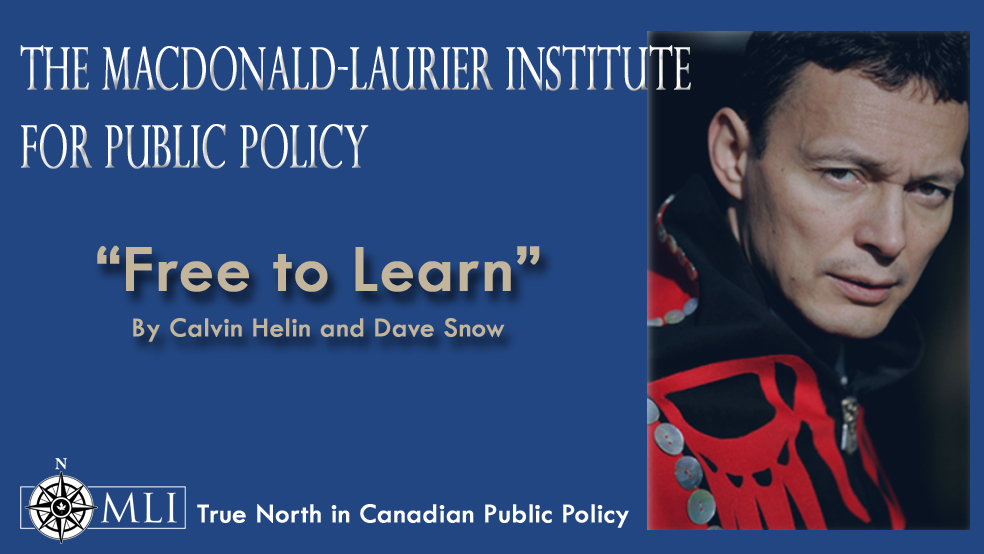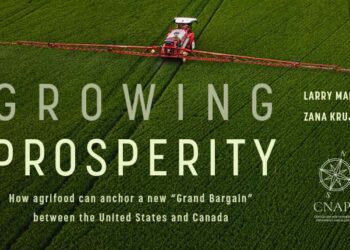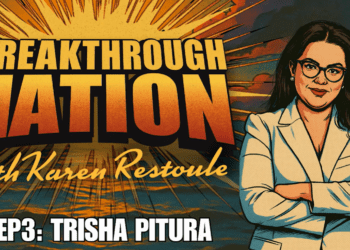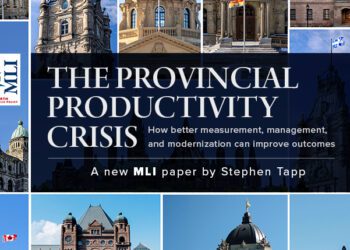
(le français suit)
Majority of Canadians Support Direct Funding of First Nations Students
Ottawa, June 23, 2010 — A clear majority of Canadians— fifty-seven percent —want federal funding for post-secondary education of First Nations youth to go directly to the individuals themselves. This is the key finding of a national survey carried out for the Macdonald-Laurier Institute by COMPAS Inc., in May, 2010.
The survey echoes the findings of a Macdonald-Laurier study, titled Free to Learn, thatcalls on the federal government to reform its funding of post secondary education for First Nations students. The key proposal of authors Calvin Helin and Dave Snow is to create Aboriginal Post Secondary Savings Accounts that would be opened at birth for every registered First Nations child. The report was released in March.
A program such as this would provide empowerment directly to individual aboriginal students as they plan their own education and choices for learning. It would replace the government’s cumbersome Post-Secondary Student Support Program, which gives $314-million annually to First Nations band councils to distribute it as they see fit with little or no accountability.
In releasing the poll results, Brian Lee Crowley, Managing Director of the Institute, said: “We are pleased to see that Canadians are willing to look at new models for the delivery of essential programs for our aboriginal youth. Education is the cornerstone for success for any child.”
He went on to note: “Aboriginal post-secondary education funding is in need of an overhaul and part of the change should be to put dollars directly into the hands of those who use them.”
Mr. Crowley pointed out that the survey also asked respondents if they thought that First Nations people had too much power, just enough, or too little power. Responses indicated that only 20% thought First Nations have too much power, 35% said just enough, and 31% thought First Nations have too little power. He added: “Among the latter group, support for direct payment is even higher than among the public as a whole—66% vs. 57%. This provides further evidence that many Canadians are sympathetic to the individual empowerment that we have proposed.”
-30-
Survey details are attached below
For more information, or to arrange an interview with Calvin Helin, Dave Snow or Brian Lee Crowley, please contact Stephanie Delorme at 613-482-8327 ext. 101 (stephanie.delorme@macdonaldlaurier.ca)Free to Learn may be downloaded free from the Institute’s website www.macdonaldlaurier.ca
Survey Details:
Attitudes towards Funding Higher Education in First Nations Communities
|
current method of transmitting subsidies
|
proposal for direct payment
|
don’t know/
no opinion
|
|
|
All Canadians
|
32
|
57
|
11
|
|
Canadians who feel First Nations have too little power
|
26
|
66
|
8
|
Question 1: There’s been talk about the best way of funding higher education for First Nations communities. ROTATE Some people prefer the current method, whereby taxpayer money goes to the local First Nations governments for the elected officials to distribute. Other people prefer the money to go directly to students themselves to remove any risk of political interference. Which of these options do you prefer? French language version: Certains ont discuté de la meilleure mesure à prendre pour financier l’enseignement supérieur pour les communautés des Premières nations. Certains préfèrent la méthode actuelle, selon laquelle l’argent des contribuables est distribué aux gouvernements locaux des Premières nations pour les fonctionnaires élus à distribuer eux-mêmes. D’autres préfèrent que l’argent soit remis directement aux étudiants eux-mêmes afin d’éliminer tout risque d’ingérence politique.
Question 2 : Do you believe that First Nations people have too much power, just enough power, or too little power?
The national representative survey of approximately 500 respondents is considered accurate to within approximately 4.5 percentage points 19 times out of 20. It was conducted during May, 2010. The principal investigator was Conrad Winn Ph.D.
La majorité des Canadiens approuve le financement direct des étudiants autochtones
Ottawa, le 23 juin 2010 – La majorité des Canadiens (57%) est d’accord pour que le financement fédéral des études postsecondaires pour les jeunes des Premières nations soit versé directement aux individus concernés. C’est la conclusion principale d’un sondage national mené par COMPAS au mois de mai 2010 pour le compte de l’Institut Macdonald-Laurier.
Le sondage reflète les conclusions d’une étude de l’Institut Macdonald-Laurier parue en mars, Libres d’apprendre, qui recommande une réforme en profondeur du financement fédéral des études postsecondaires pour les étudiants autochtones. La recommandation principale de Calvin Helin et Dave Snow, les auteurs de l’étude, est la création d’un compte d’épargne-études autochtone qui serait ouvert à la naissance pour chaque Indien inscrit.
Un tel régime redonnerait le contrôle aux étudiants autochtones et leur permettrait de mieux planifier leur parcours éducationnel. Il remplacerait le système actuel, le Programme d’aide aux étudiants de niveau postsecondaire, qui verse chaque année 314 millions de dollars aux bandes autochtones, argent que celles-ci distribuent aux étudiants comme bon leur semble, avec très peu d’imputabilité.
En annonçant les résultats du sondage, le Directeur général de l’Institut, Brian Lee Crowley, déclare: « Nous sommes ravis de voir que les Canadiens sont prêts à considérer de nouvelles idées afin de mieux distribuer les programmes essentiels à nos jeunes autochtones. Une bonne éducation est essentielle au succès de tout enfant. »
Il ajoute: “Le financement des études postsecondaires pour les autochtones a grand besoin d’être réformé, en partie du moins cela veut dire mettre l’argent directement à la disposition de ceux à qui il est destiné. »
M. Crowley a aussi fait mention du fait que le sondage demandait aux répondants s’ils croyaient que les Premières nations avaient trop de pouvoir, juste assez, ou pas assez de pouvoir. Seulement 20% pensent que les Premières nations ont trop de pouvoir, 35% dissent juste assez, et 31% trouvent que les Premières nations n’ont pas assez de pouvoir. Il ajoute : « Parmi le dernier groupe, l’appui au financement direct des études postsecondaires est plus grand que dans l’ensemble de la population – 66% comparé à 57%. Cela démontre que beaucoup de Canadiens sympathisent avec la solution que nous proposons, qui a pour but d’encourager les autochtones à s’aider eux-mêmes. »
-30-
Les détails du sondage suivent
Pour plus d’information, ou pour une demande d’entrevue avec Calvin Helin, Dave Snow ou Brian Lee Crowley, prière de contacter Stephanie Delorme au 613-482-8327, poste 101 (stephanie.delorme@macdonaldlaurier.ca)Libres d’apprendre est disponible sur le site web de l’Institut Macdonald-Laurier, www.macdonaldlaurier.ca
Détails du sondage:
Opinions sur le financement des études postseconaires pour les Premières nations
|
MÉTHODE ACTUELLE DE TRANSFERT DE SUBVENTIONS
|
pROPOSITION DE FINANCEMENT DIRECT
|
NE SAIT PAS/PRÉFÈRE NE PAS RÉPONDRE
|
|
|
Ensemble des Canadiens
|
32
|
57
|
11
|
|
Canadiens qui pensent que les Premières Nations n’ont pas assez de pouvoir
|
26
|
66
|
8
|
Question 1 : Certains ont discuté de la meilleure mesure à prendre pour financier l’enseignement supérieur pour les communautés des Premières nations. Certains préfèrent la méthode actuelle, selon laquelle l’argent des contribuables est distribué aux gouvernements locaux des Premières nations pour les fonctionnaires élus à distribuer eux-mêmes. D’autres préfèrent que l’argent soit remis directement aux étudiants eux-mêmes afin d’éliminer tout risque d’ingérence politique.
Question 2 : Croyez-vous que les Premières nations ont trop de pouvoir, juste assez de pouvoir, ou pas assez de pouvoir?
Ce sondage représentatif national a questionné environ 500 répondants. La marge d’erreur est de 4,5 % 19 fois sur 20. Il a été conduit en mai 2010. Le sondeur principal était Conrad Winn, Ph.D.




